Plastic cocktail straws may be the bane of modern existence—or at least one of them. With single-use plastic bans coming down the pike, restaurants and bars must find alternative solutions.
Plastic cocktail straws take hundreds of years to break down in the environment. It’s estimated that 500 million straws are used daily in the US. They’re used once, then end up in landfills, waterways, and elsewhere.
Having depended on cheap plastic cocktail straws for decades, switching to more sustainable or biodegradable cocktail straws is simple enough in theory but comes with significant cost concerns. Even paper straws can be as much as ten times the price of conventional plastic, which adds cost to each drink and takes a bite out of the bottom line.
But the shift needs to happen. Our planet matters, and anything we can do to reduce our footprint is a step in the right direction. So, how do you choose a sustainable product that’s both cost-effective and aligns with your brand’s look and vibe?
Sustainability, performance, aesthetics, tactile attributes (feel and taste), and cost are all concerns; luckily, there are many options out there. However, not all of them will be appropriate for your beverage program.
Today, we will take a deep dive into plastic cocktail straw alternatives to help you choose the best product for your needs. But first, let’s flesh out a few key points.
Why Not Just Use the Cheapest Option?
We talked a little about plastic waste, single-use plastic bans, and making more planet-friendly choices—and those are the top reasons you should move away from plastic cocktail straws. From disposable cutlery to bar supplies, every purchasing decision that you make has an impact.

Plastic cocktail straws:
- Cannot be reused or recycled
- Will not break down into non-toxic materials
- Collect in waterways and landfills, where they poison the soil and water
- Harm marine animals and habitats
- Pose a threat to plant life
- Shed into microplastics that make their way back into the food chain
Plastic cocktail straws are made from petroleum, which is unsustainable. Petroleum extraction, refining, processing, and manufacturing put 1.8 billion metric tons of greenhouse gas into the environment annually, significantly contributing to climate change and global warming.

Moving away from single-use plastics like straws may not turn the tide, but it will help. Since the food and beverage industry is a major consumer of single-use plastics, we have an opportunity to do something about it. We might not be able to save the world, but if we focus on the right things, we might move the needle in the right direction.
Beyond Sustainability: Why Your Purchasing Choices in this Category Matter
Choosing the right plastic straw alternative for your restaurant or bar isn’t always easy. Not all biodegradable straws are created equal.
Performance is critical. You don’t want your straws to get soggy in a drink. They also need to look good. But a paper straw you’d use in a milkshake or soft drink won’t look great in a craft cocktail.
There’s also end-of-life to consider, i.e., how you dispose of your straws. For example, compostable straws might seem like a good idea. Still, if your restaurant doesn’t have a green bin program (they require industrial composting, not the backyard variety), they’ll end up in the trash anyway and won’t be any better than plastic cocktail straws. It’s worse, actually, because they’re so much more expensive. You might as well burn your money for all the good you’re doing for the planet!
A Few Words About Compostable Bioplastics
Compostable bioplastics are a fantastic innovation. They’re made from organic waste, like agave, corn, sugar beets, sugar cane, or other agricultural plant waste. They look and perform just like traditionally made plastics, but they can be broken down through industrial composting programs. Using this method, it usually takes about three to six months to break down.
Bioplastics require high heat to biodegrade, so they need industrial composting.
But that’s a key point: they must be disposed of properly, which can be an issue. For example, food service businesses selling takeout beverages will be challenged to ensure their customers throw their cocktail straws in the curbside green bin, not the trash. You’ll also need to educate your employees because, let’s face it, they are constantly multi-tasking and their first instinct will be to throw the straws in the trash. Even if 80% of your bioplastic straws end up where they’re supposed to be, 20% still goes into the landfill or somewhere equally bad.
Plus, you’ll need to ensure your takeout cup is similarly eco-friendly. There is no point in using bioplastic straws when your cups can’t be recycled or composted.
Bottom line, think about how you will manage the program before you choose a compostable product.
Bamboo Straws
Bamboo is a sustainable, renewable fiber source used to make many materials, including paper. Bamboo cocktail straws are 100% biodegradable and compostable as long as they are made in an environmentally-friendly way.
If you’re making the switch to bamboo, research the manufacturer to ensure they use ethical practices. High demand for bamboo has led to overcropping and monoculture forests, which encourage disease and are generally bad for the environment.

Monocropping leads to dependency on chemical fertilizers and sprays, which can potentially leach into the water table, which will poison the soil for any future crops.
On the plus side, bamboo cocktail straws can be less expensive than paper straws. They do not conduct heat or cold, which may make them more pleasant for temperature-sensitive people. Bamboo is compostable in your curbside green bin or home compost, but it can also be tossed with the trash and will break down in a landfill.
On the downside, bamboo cocktail straws can sometimes have a plant-y taste or smell. Bamboo will also absorb liquid, causing them to get soggy. You’re also limited in style and color; most bamboo straws are earthy brown or green, which may or may not align with your branding.
Plant-Based Straws
Plant-based straws, such as reed or wheat stalk straws, are 100% biodegradable and cut from the stems of renewable wheat and reeds, offering a simple, sustainable, and stylish alternative to traditional plastic straws. Interestingly, this type of straw was likely the precursor to manufactured straws. Our ancestors probably enjoyed beverages sipped from wheat straws hundreds of years ago, so it’s nothing particularly new.

Wheat and reed straws perform well in hot and cold beverages and will hold their shape even when left in liquid for long periods. Wheat cocktail straws are also gluten-free as the part of the wheat stalk used does not come in contact with the seed head. They are tactile, smooth, tasteless, and won’t change the flavor of your drink.

Wheat and reed straws may break if pinched or bent and may not have a consistent diameter from batch to batch. But if you’re running a craft cocktail program where authenticity rules, this might not be a concern.
Agave Cocktail Straws
Agave cocktail straws are made from a fiber produced from waste fibers from the agave plant. Agave is farmed for tequila and mezcal production, a process that results in quite a lot of waste. Turning that waste into straws and other single-use food packaging is a great way to solve the waste problem and provide a more sustainable alternative to bioplastics.
The best thing about agave cocktail straws is that they will break down by 95% in their first six months in a landfill, so you don’t have to worry too much about disposal, either on-premise or for takeout. Agave straws are also highly durable, performing similarly to plastic straws.
On the downside, agave straws can break and pose a health and safety risk for customers due to splintering, which may present a choking hazard. There is also limited choice in colors and styles, so they might not be as versatile as you need them for your beverage program.
Paper Cocktail Straws
Paper straws are a simple choice, but they might not be the most ecological. Paper is made from wood, which means deforestation. We need trees for oxygen and to regulate temperature. This is one of the biggest concerns with climate change. The more trees we lose, the less chance we have of mitigating global warming.
Paper production also uses a ton of water. Reducing water usage is critical to be genuinely eco-friendly, so this should be a consideration. Paper straws are also highly likely to contain PFAS, a family of chemicals used as coatings that are starting to be phased out by the FDA. Research has shown that PFAS is linked to chronic diseases, obesity, thyroid disease, cancer, and infertility.

Not to be too fatalistic, paper straws have many advantages, and not all contain PFAS. They are easily disposed of and come in many sizes and colors to suit your needs. On the downside, they can be expensive, and most will not maintain their integrity when left in a drink, nor will they tolerate warm temperatures.
Biodegradable Cocktail Straws
Biodegradable cocktail straws is a broad category encompassing many different types of straws. When an item is described as biodegradable, it means the item will decompose naturally. However, materials break down at different rates, and many have specific disposal concerns you should be aware of. The message here is that simply because a straw is biodegradable, it doesn’t mean you can toss it anywhere.
Take PHA, for example. PHA is a biodegradable thermoplastic made from various renewable plant-based fibers. PHA is probably the closest to plastic in terms of durability, performance, and style versatility, but it must be disposed of through an industrial composting program.
Paper, wheat, reed, and agave straws are also biodegradable, yet these straws can be safely tossed with the trash and require no special consideration.
All that is to say, biodegradable is a general term and should invite you to research a little further to be sure you understand what you’re buying and how you’ll need to dispose of it.
Nodax PHA Straws
Nodax PHA is unlike other types of PHA. It’s made from canola and marine biodegradable, meaning it will break down in water (in case it ends up in waterways) and will also break down in regular compost. However, Nodax PHA won’t break down in a landfill, so even though it’s more convenient and ostensibly ‘better’ than other PHA bioplastics, you’ll still need to consider its end-of-life.

Currently, the most common brand of Nodax PHA straw is Phade®. If your brand color is teal blue, you’re in luck–because that’s the only color Phade® offers. They’re also quite a bit more expensive than other types of biodegradable cocktail straws, with some styles costing up to .16 per straw. A handful of other companies are innovating with Nodax PHA, so it’s conceivable we’ll see more variety in the coming years.
AirCarbon Cocktail Straws
AirCarbon is going to save our planet from all plastic. At least, that’s the idea. Once it takes off, the world will never be the same. In a good way.
AirCarbon is made from PHB, resulting in a material closely resembling plastic. PHB is a biodegradable polymer that exists in nature. Trees pull CO2 out of the atmosphere to encourage leaf growth. Coral does the same with ocean water so it can replicate, regenerate, and grow. PHB is the result. A company called Newlight synthesized this process to create AirCarbon, from which they make myriad products, including luggage, clothing, sunglasses, and single-use food service items, like straws.
Since AirCarbon is made from bacteria digested by greenhouse gases, it accomplishes two things: it takes CO2 out of the environment (even during the manufacturing process), and it creates products that will naturally return to the earth. The resulting product is carbon-negative, which bodes well for the future—if they can scale production to meet demand.
As for pricing, AirCarbon straws are comparable to Phade®, but you might be challenged to find a distributor. Suffice to say, AirCarbon is the future. Now you know.
A Note to Bar and Restaurant Buyers
Choosing the right plastic straw alternative requires careful consideration. While cost is a significant factor, it shouldn’t be your only criterion. Many buyers are pressured to maintain cost controls, but prices can be adjusted so your choice of bar supplies doesn’t impact your bottom line.
Consumers today will often pay more for sustainable products and will go out of their way to patronize businesses that use them. Whatever you decide, be a champion for your choice. Ensure your staff can articulate the benefits of your straws so that when people ask, they can get behind it.
The coming months will see many states impose single-use plastic bans, and we’re working hard to make it easy for our customers to make the switch and choose wisely.
Other ways to reduce straw waste:
Aside from choosing a more sustainable alternative to plastic straws, here are some other creative ways to reduce waste behind the bar:
- Ask about guest preferences: In most bars, adding straws to drinks is the default procedure. However, when bartenders ask guests about their preferences, oftentimes they find that many consumers forego straws altogether, which plays a huge role in reducing unnecessary waste.
- Know your cocktails: Professional bartenders know that not all cocktails are best served with a straw (very few, actually). Therefore, you can reduce your program's impact substantially by only using straws when they are called for.
- Incentivize guests to bring their own: As awareness of the climate crisis has increased, it has become more common for consumers to bring their own reusable straws into bars and restaurants. Incentivize this practice by offering a slight discount to customers who bring straws. It doesn't have to be much; even passing on the savings of a straw could be a memorable gesture.
Browse our selection of bulk wheat and reed straws today, and don’t hesitate to reach out if you have any questions.



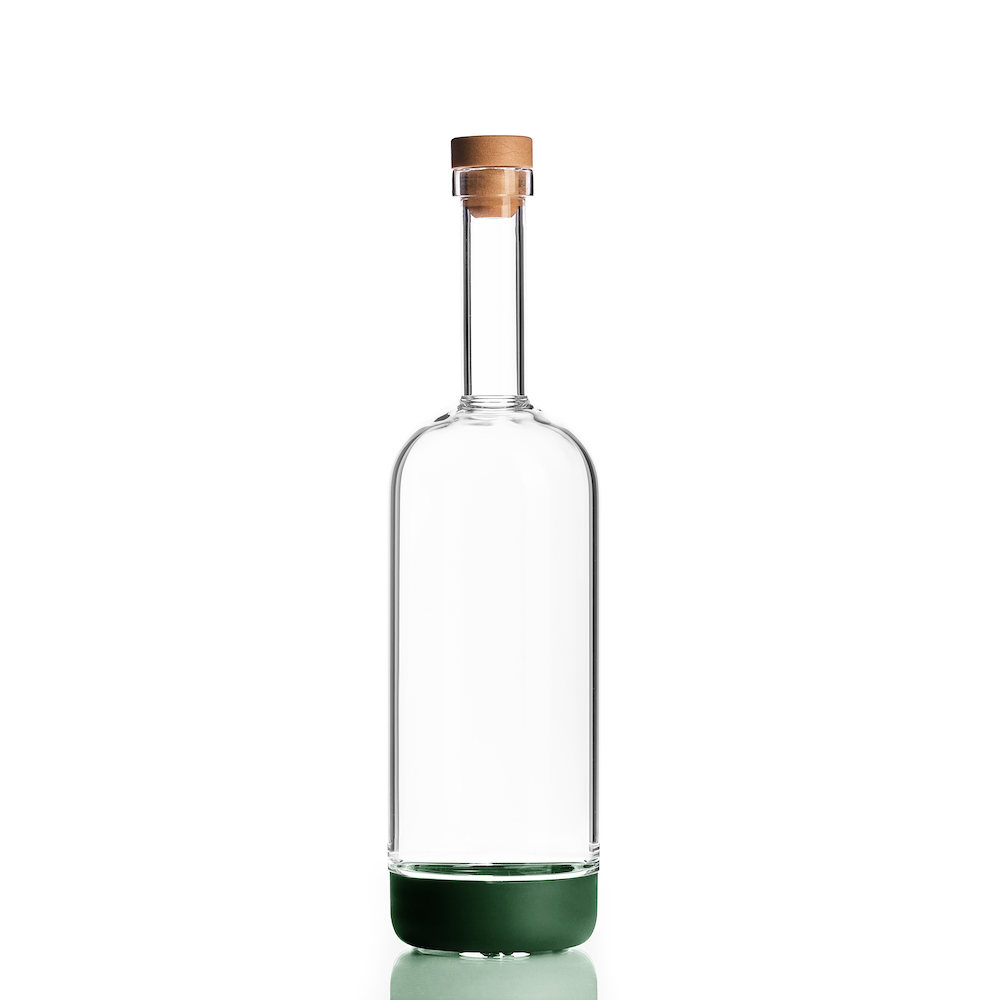

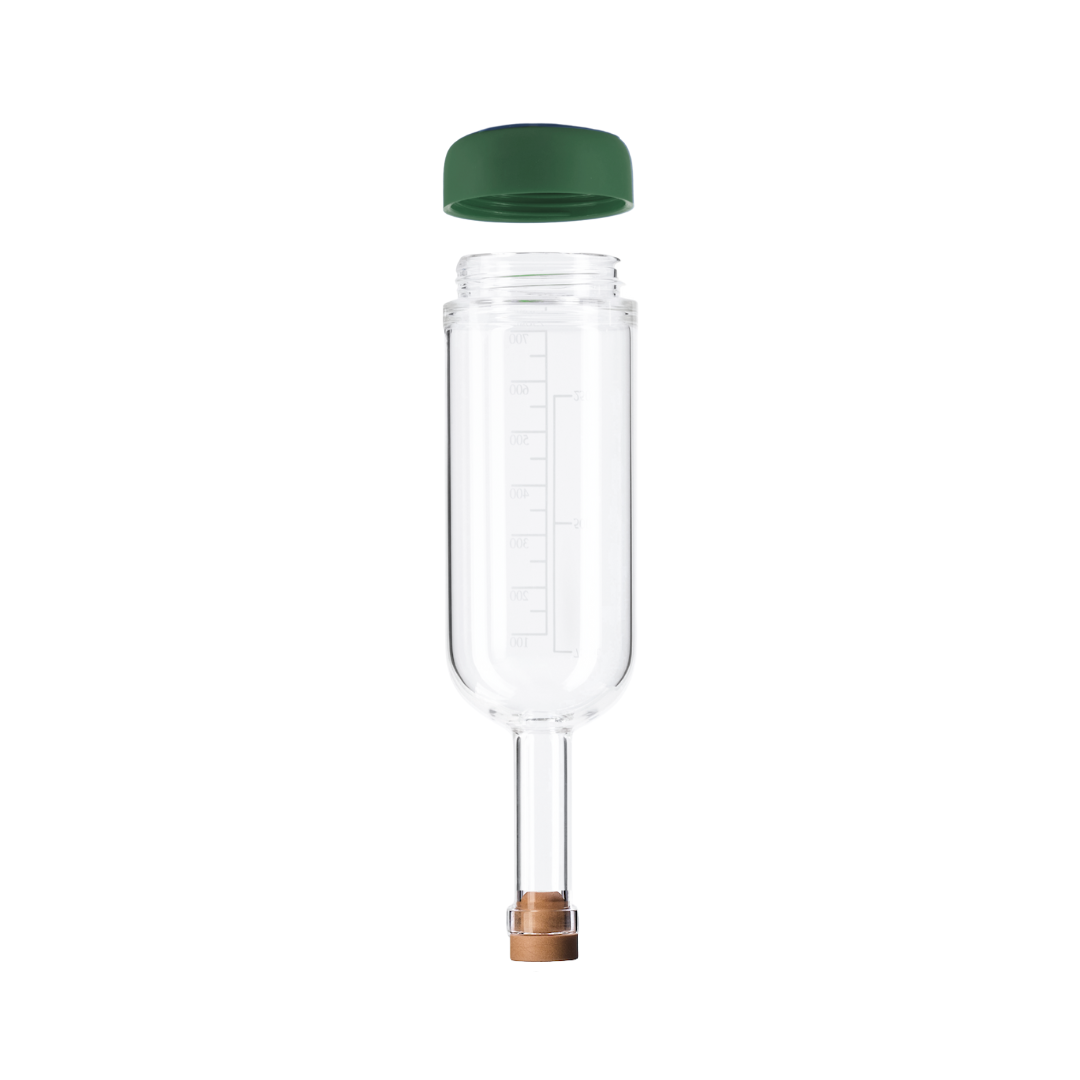
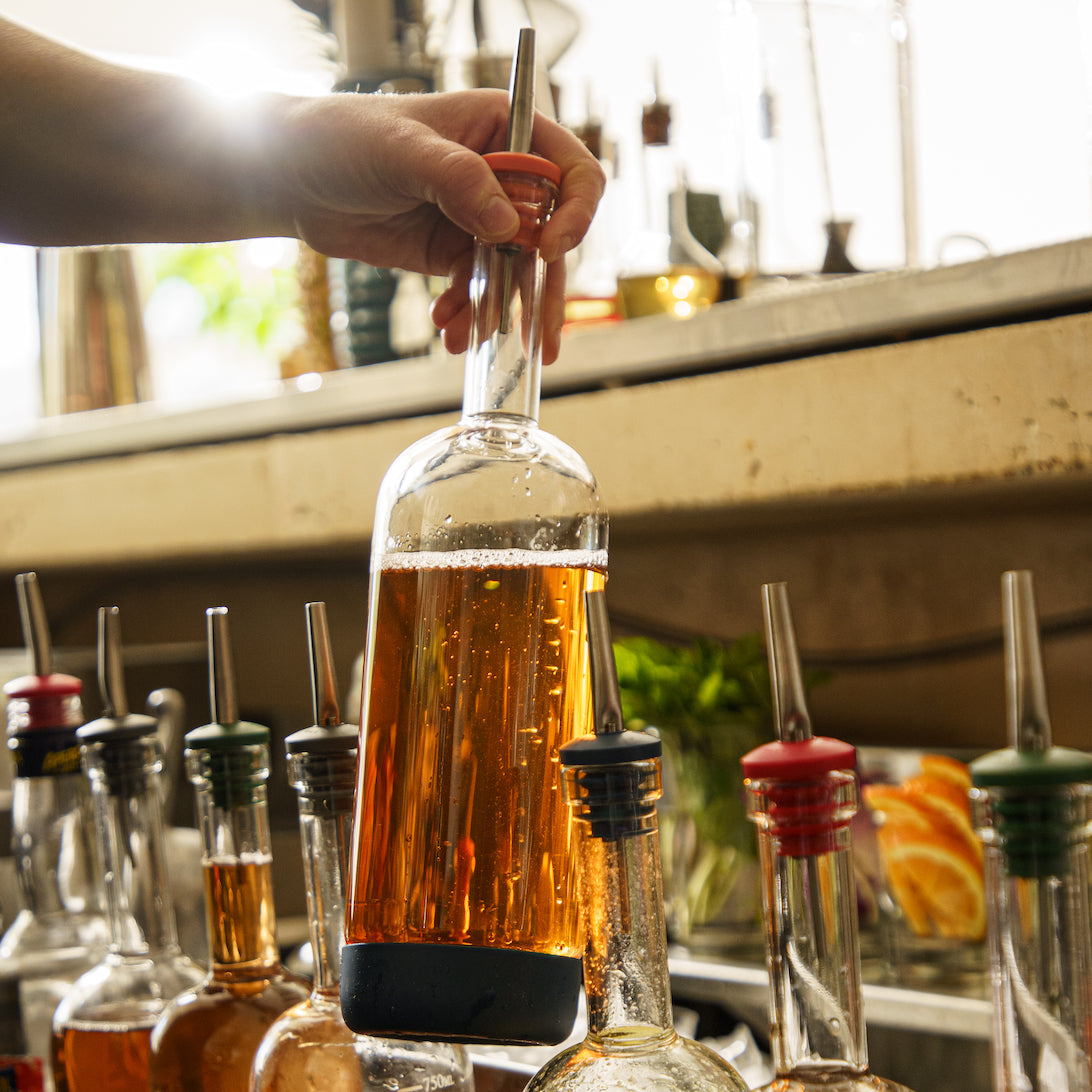
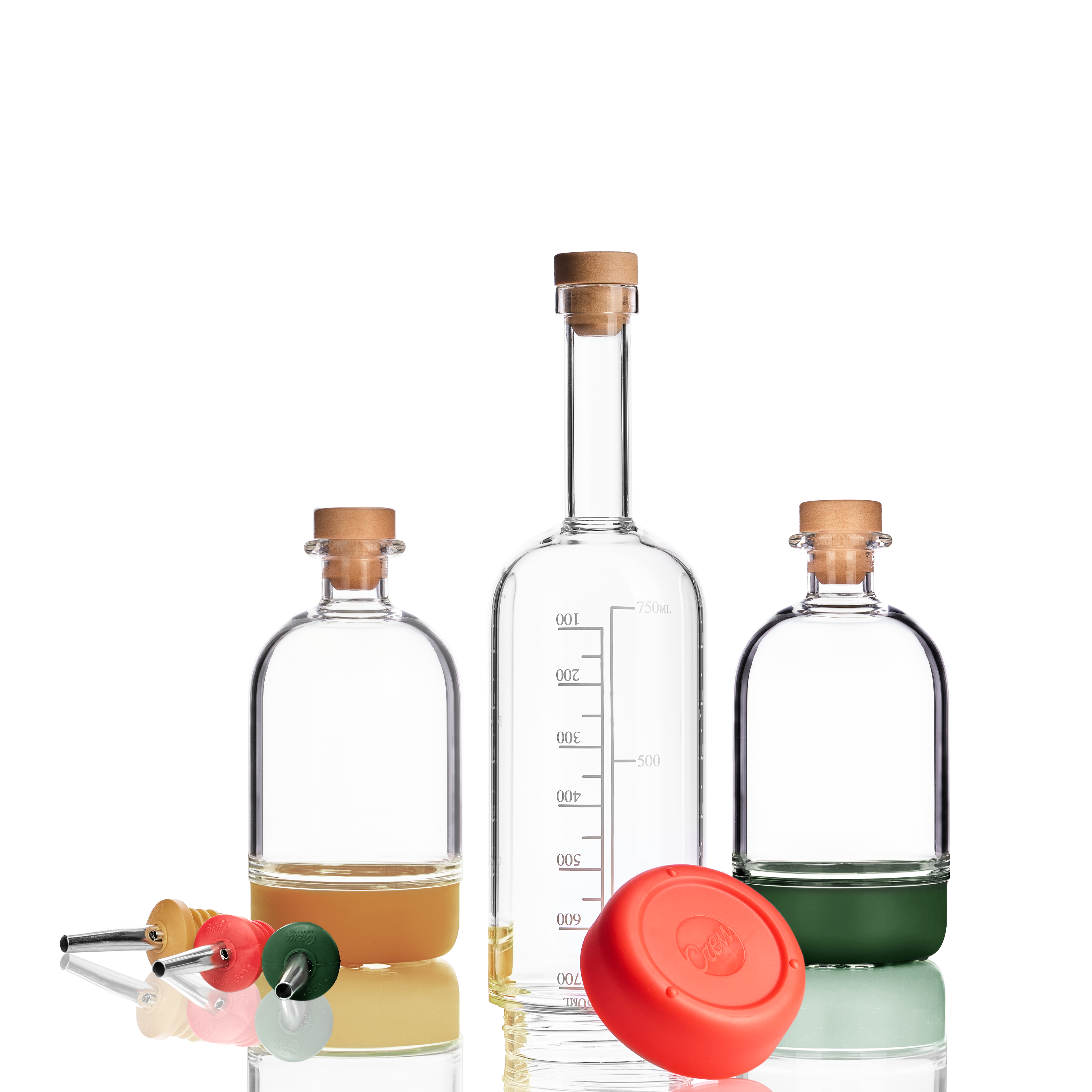

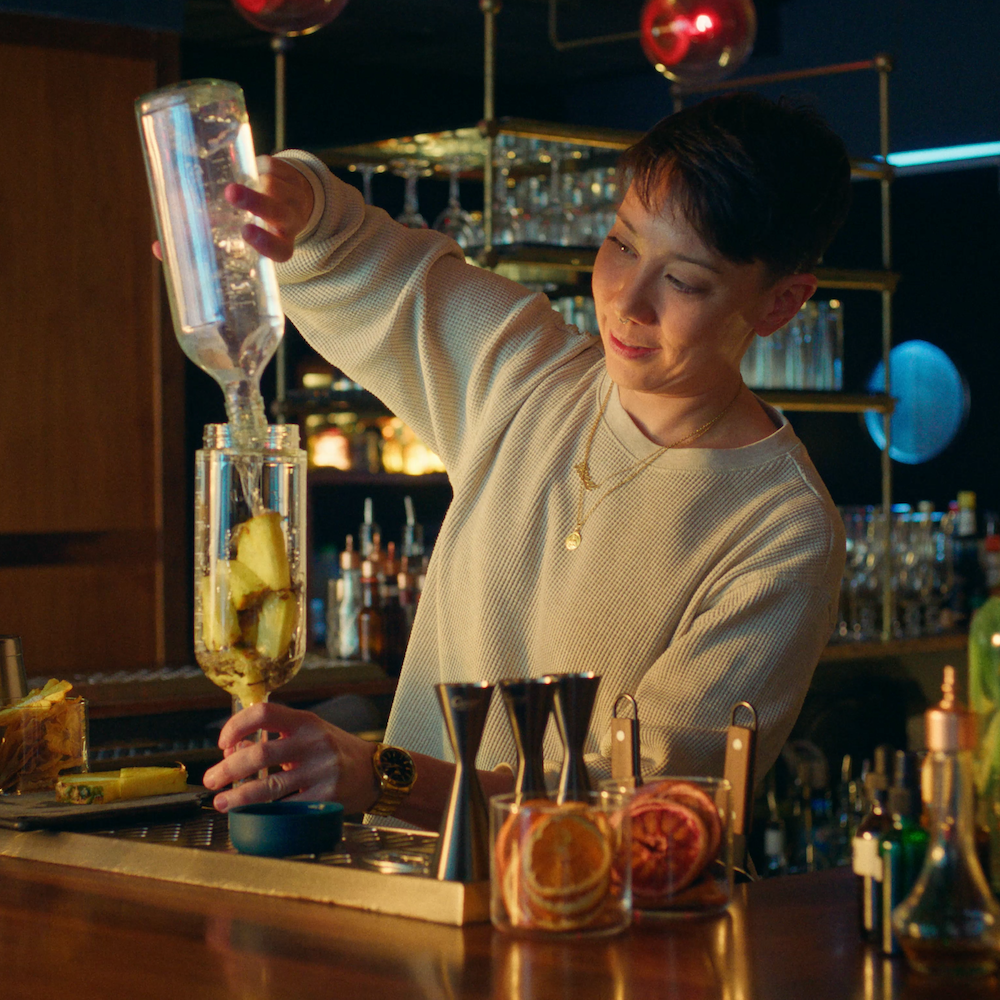
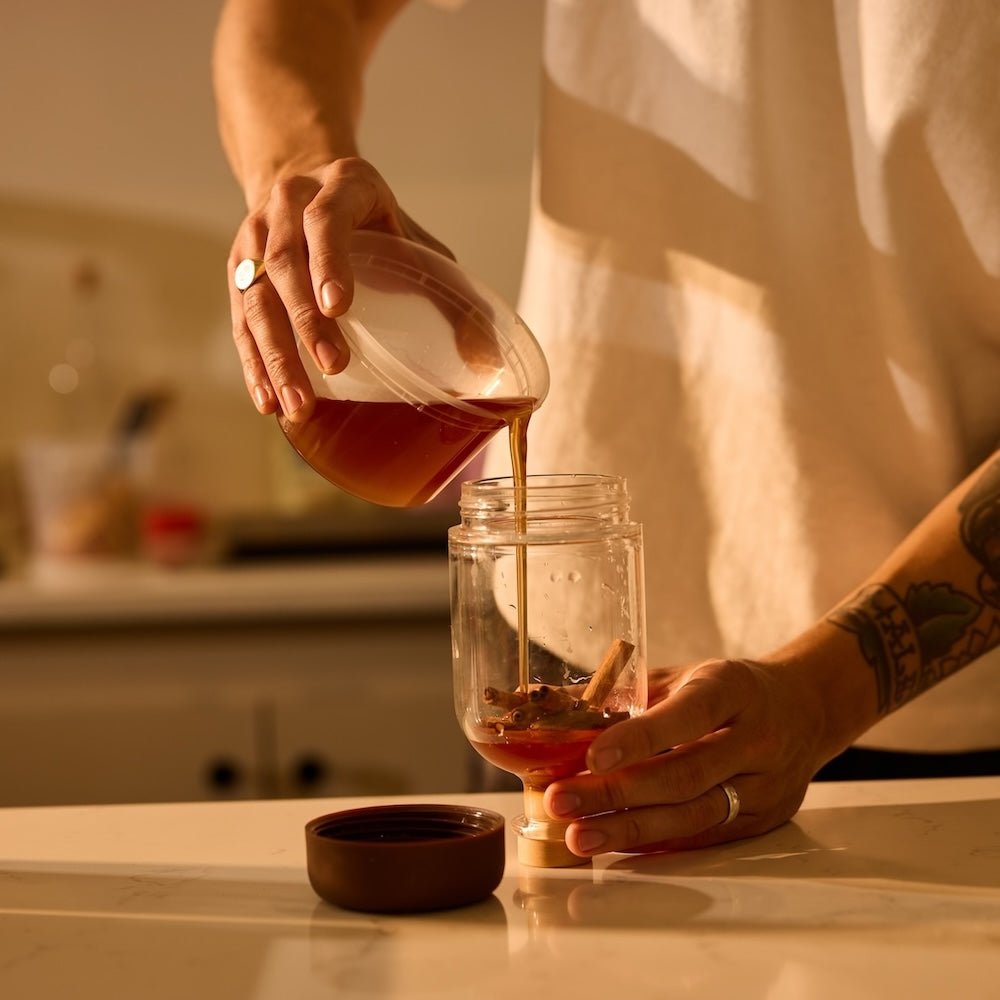
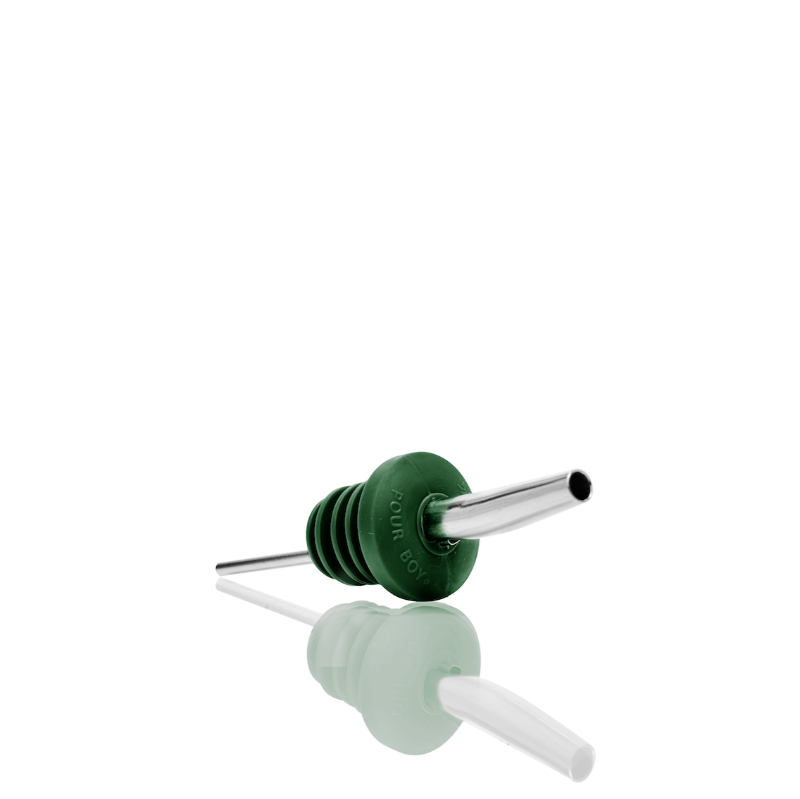

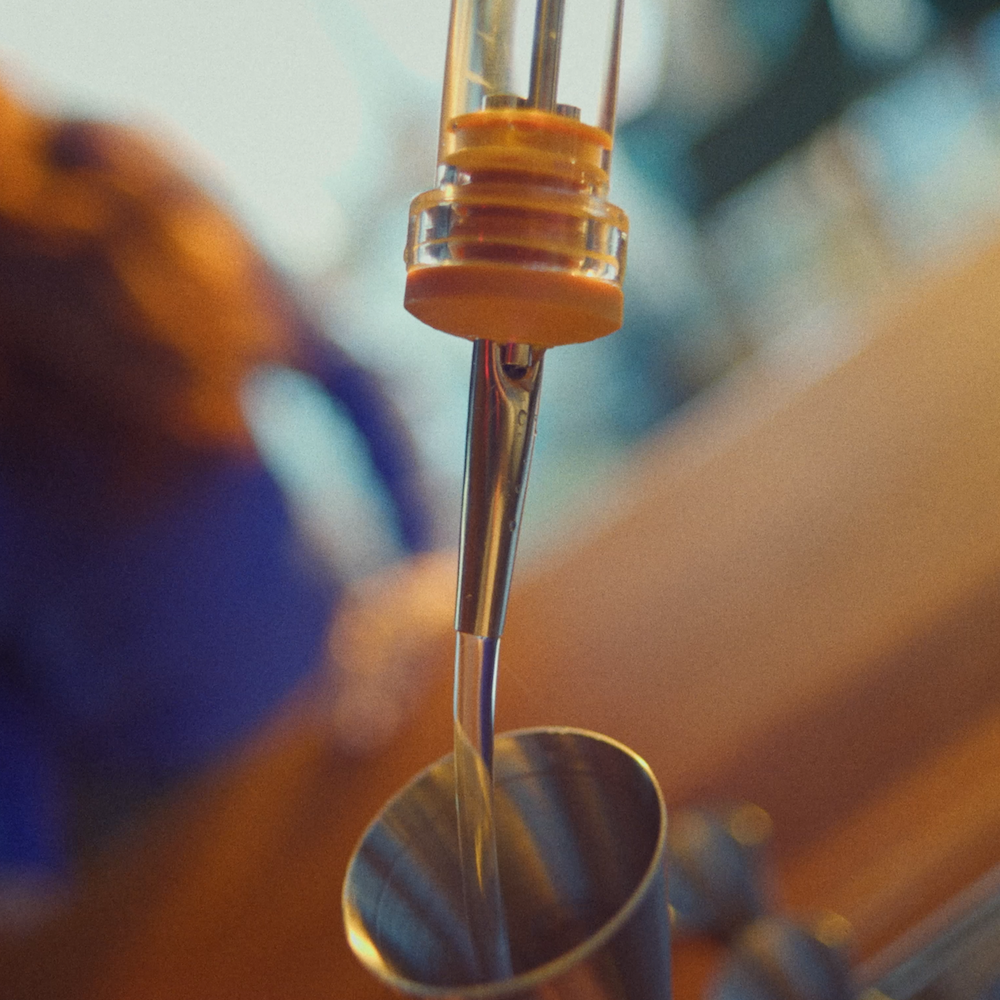
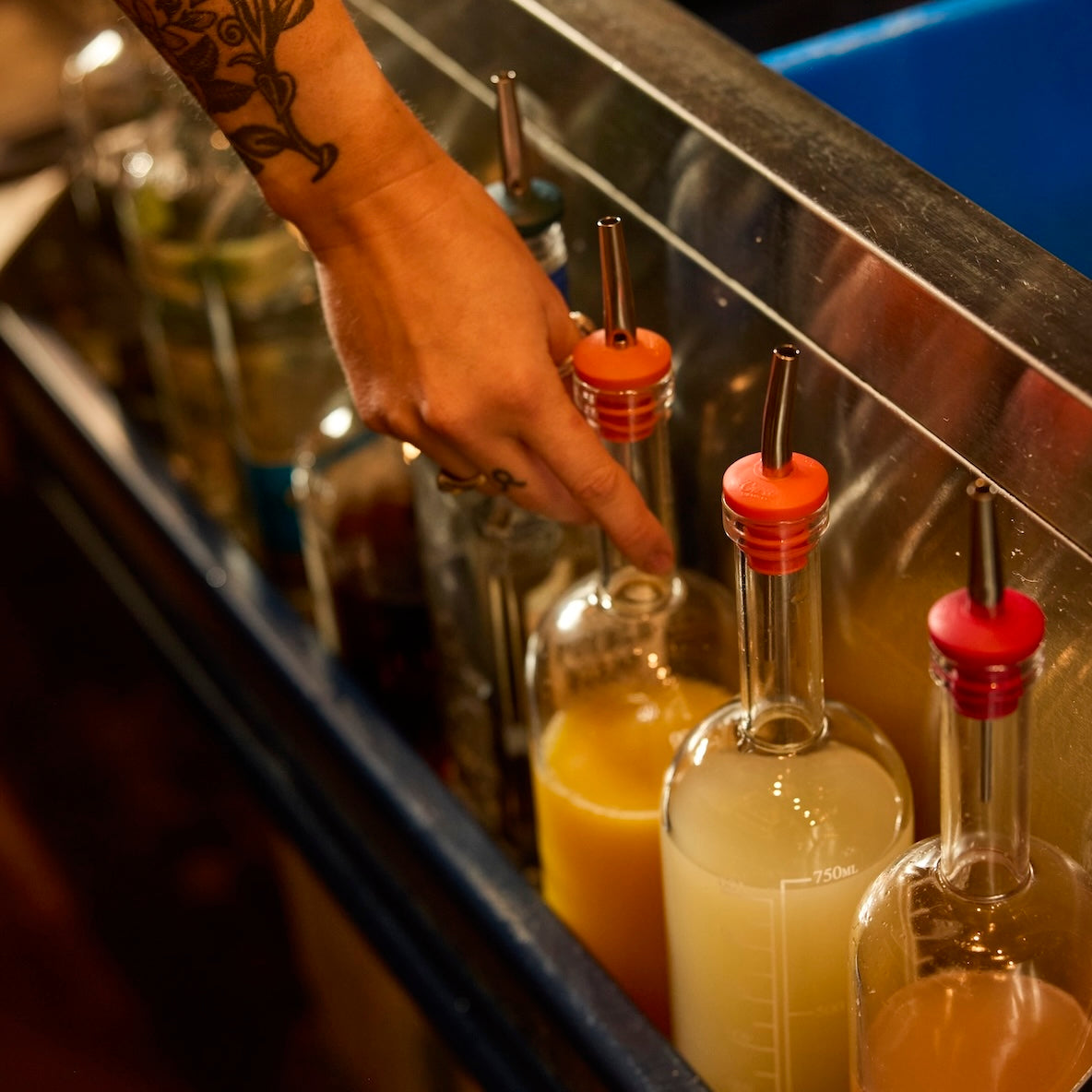
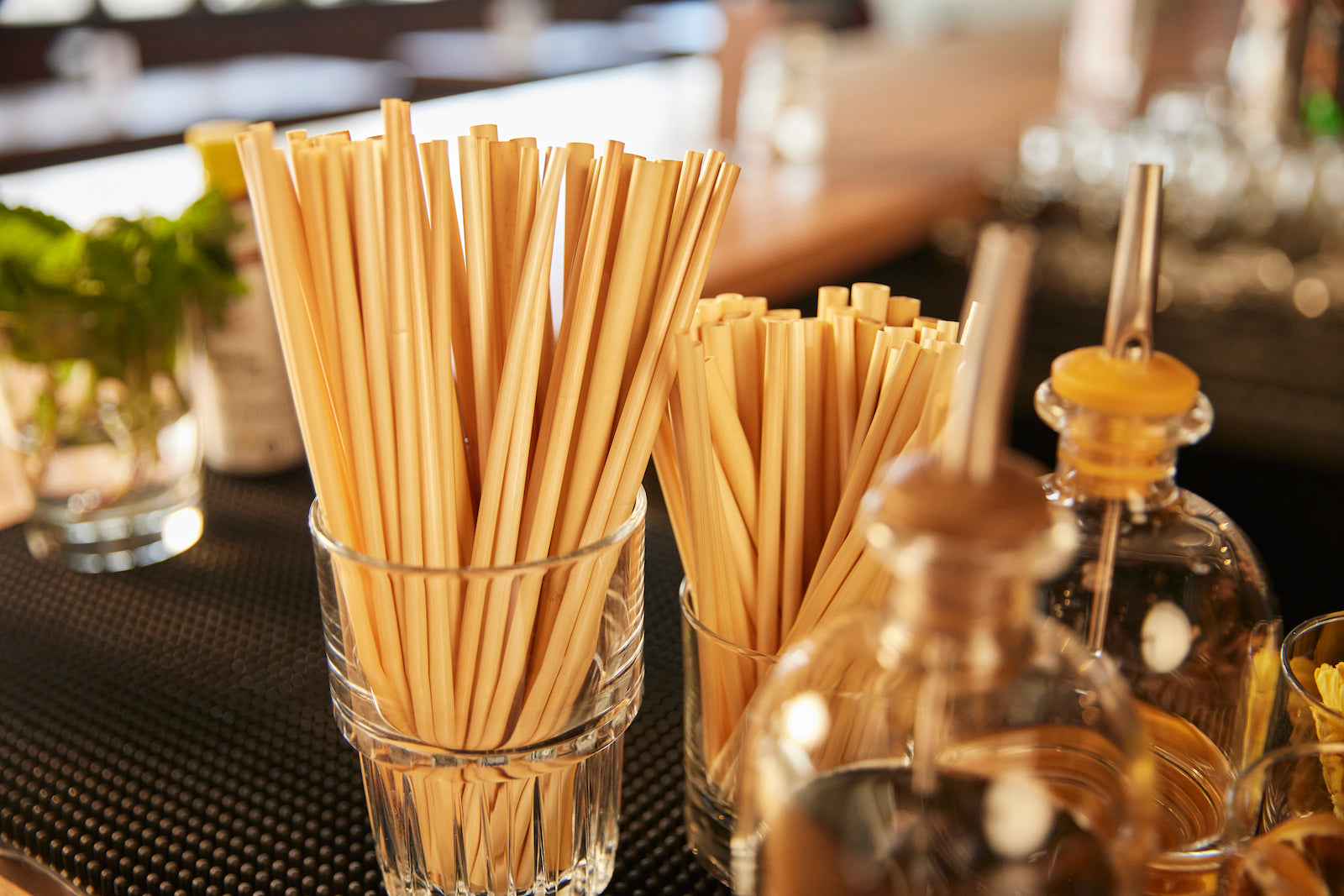
Share:
Pour Spouts: The Ultimate Guide to Liquor Pourers, Pouring Spout Innovation, and Modern Applications
Elevating Your Craft: How Quality Bar Supplies Impact Guest Experience and Business Success